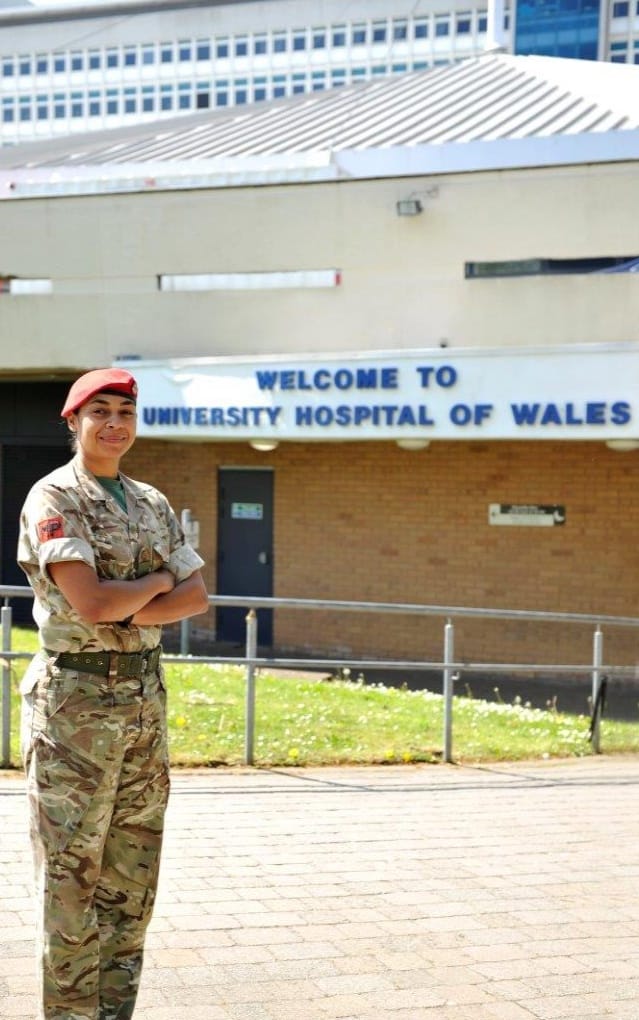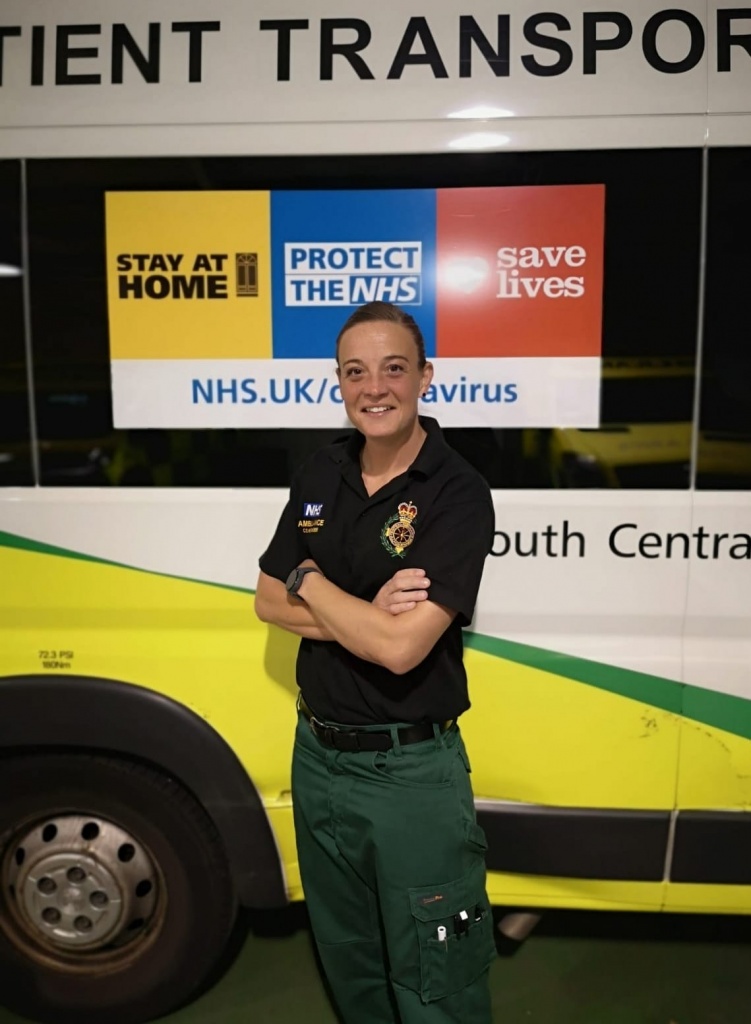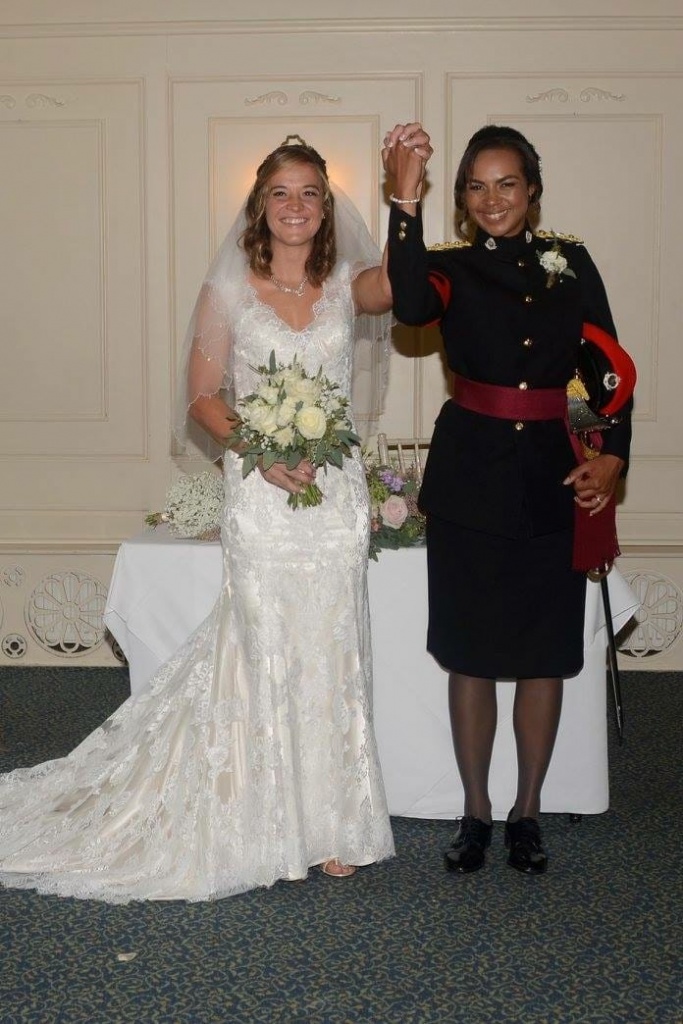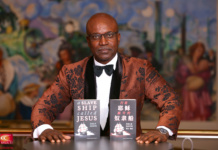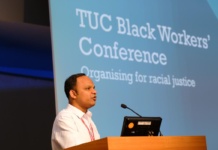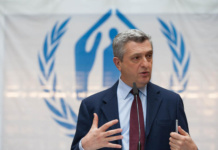
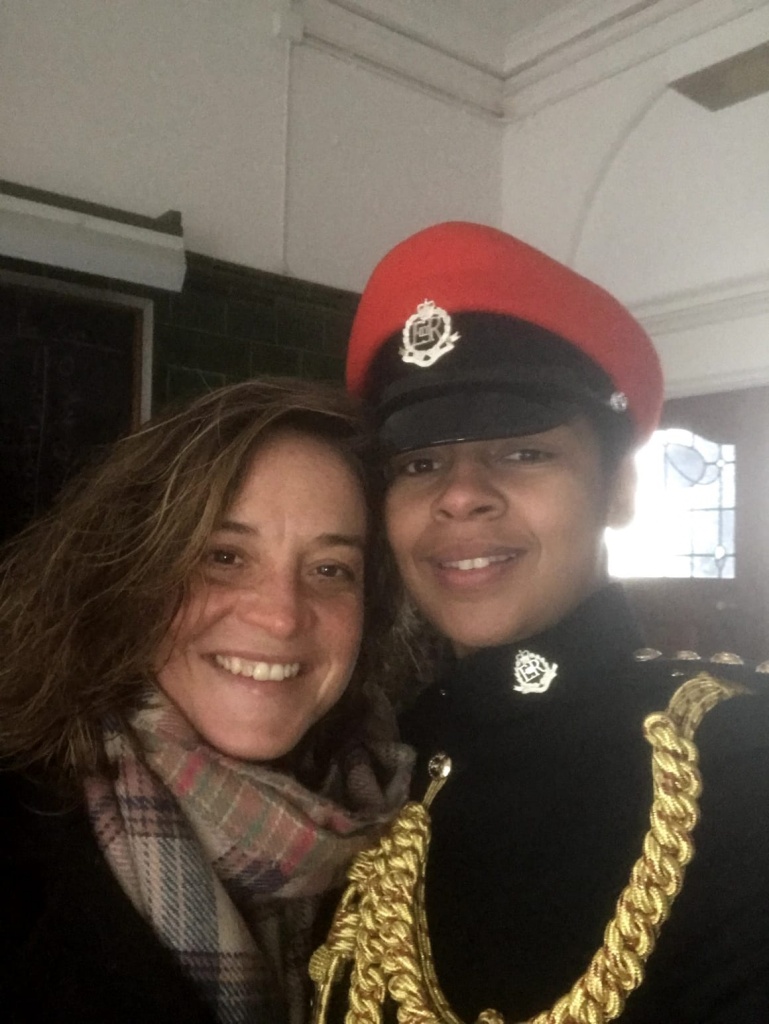

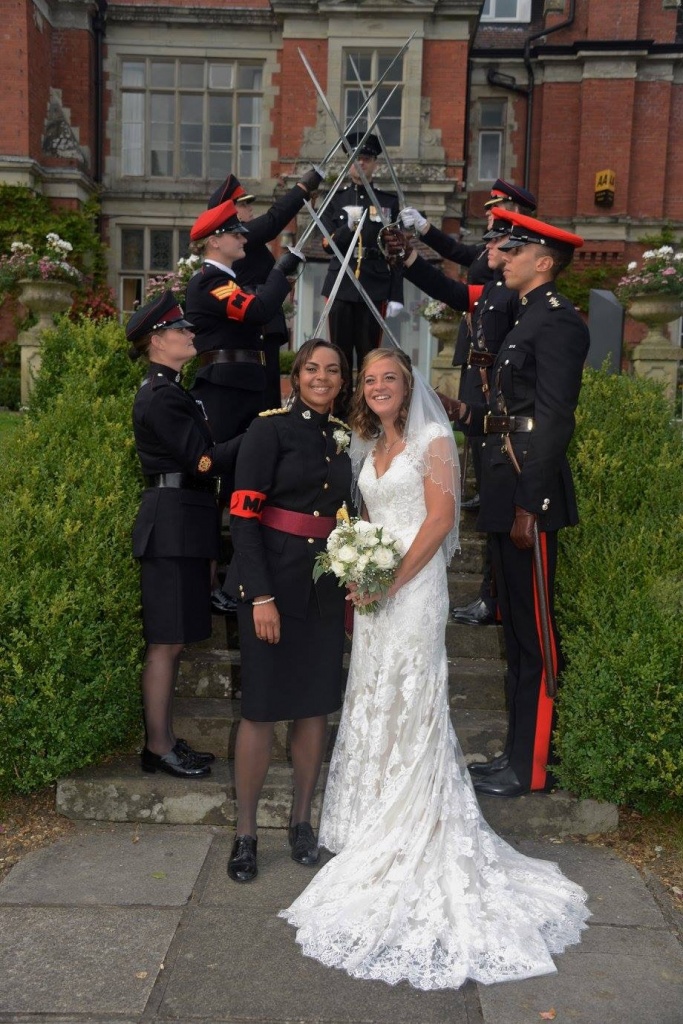

A military couple that signed up to the Armed Forces Covid Support Force have been deployed to different locations for months providing a range of activities, from medical to logistical support in response to the coronavirus outbreak.
African Voice presents an interview with Major Chantelle Miller, 33, of the Royal Military Police and her wife of nearly three years Staff Sergeant Tara Miller, 34. Tara helps the South Central Ambulance Service and Chantelle supports the Cardiff and Vale Health Board. The couple live in Larkhill base military camp near Salisbury normally. Tara is still living there but Chantelle has moved to Cardiff. The couple will be seeing each other for the first time in June since the end of March.
How did you two meet?
Tara: We met about seven years ago playing rugby, Chantelle was in the Royal Signals she then transferred to the Royal Military Police. I went away on tour when I came back that’s when we started dating and haven’t been able to shake her off since.
Chantelle: We met while playing rugby, started dating, but we had to press pause on that because Tara was deployed to Afghanistan for the third time. Then when she returned to UK we started dating again and the rest is history.
How did you come to be doing these new jobs?
Tara: I’ve been a military co responder for the last three years, I’ve been doing it as a volunteer thing since then. You’ve got to put at least a shift out a week and I received a phone call from my team leader Major Emma Allen on the Sunday to see whether or not I could come back and help out, if the Government then allowed us, to help the Covid fight. We then received orders through my unit to deploy out as aid towards the NHS – there was 70 of us all together called up. Out of those, 37 have gone to front line ambulances.
You’re a front line responder – have you seen many Covid cases?
Tara: 90pc of the time has been with Patient Transport. We got an pick up patients from hospital and take them to care homes or their own homes. The first five weeks it was mainly Covid patients we were picking up from hospital and taking home or to care homes because they’d beaten it, ranging from people in their mid-30s up to a lady who was 96.
It’s been an absolutely emotional roller coaster. We get our jobs come through, that we have to pick someone up and it comes up as Covid so we know which dress state we have to be in. You go up to where the Covid wards are and if you look in the windows and the bays you will see a lot of sick people and that brings it home and makes it really sad because they’re all on their own. The doctors and nurses are there to help them but they have a whole ward to look after. It brings it home to you. It’s really sad, especially when you see really elderly people by themselves and the look on their faces – they are struggling and scared, all they want to do is be at home or with someone they love.
Along side that, you go to pick Mrs Smith up and she’s literally at the door waiting to come out and she just wants to come home. She comes out, the doctors and nurses are waving her off, she’s saying ‘thank you, I wouldn’t be alive without you guys’. Then we transport her home and you’re in the back of the ambulance with her talking about how it felt, what they’ve been through, what’s the first thing you want to do when you get home? Most of them say ‘I want to sit on own sofa, look out of my own window and have a cup of tea. And that makes it a high again but it’s an absolute emotional rollercoaster for each patient.
Chantelle, what are you doing to help the Covid fight?
Chantelle: I‘m a military liaison officer, I’m a military planner working hand in hand with Cardiff and the Vale Health Board supporting them on the ground doing crisis response and developing their contingency plans in response to Covid 19. An example would be supporting them developing their testing capabilities across the south Wales area, providing support with the NHS logistics distribution system and ensuring that capacity is maintained as the NHS reconstitutes.
You’re often apart, is it different this time?
Chantelle: Yes, it’s different this time. Covid 19 is going to be the largest challenge this country has faced in decades. When we both joined the military we joined to serve, we joined to help others, so when we knew this was going to become the Army’s main effort, it’s highest priority, we both volunteered because we just wanted to do a small part to help the real heroes on the front line, the healthcare workers. It’s a great opportunity to support the local opportunity at a time of crisis. So far in our careers we’ve only been able to do that overseas, whether that’s Afghanistan or other countries, this is a real opportunity to do it on doorstep and to see the tangible results – I’m lucky enough to be working in area where I’m from so the plans I’m putting in place will have a direct effect on the local population and I find that really rewarding.
Can you tell me about something you’ve helped put in place.
Chantelle: The one that spring to mind is the support for the Dragon Heart Hospital, the development of a field hospital very similar to the NHS Nightingale that was put into London, it’s the Welsh version of it. A 1,500-bed hospital has been created in a stadium in the centre of Cardiff that is now fully operational. Arriving when it was in its infancy, we’ve been able to take the project from an idea to fruition where people are receiving the highest quality of care due to the amazing NHS staff.
You got married nearly three years ago, have you spent much time apart?
Chantelle: Over the last two to three years we’ve spent most of our time apart because of work.
Normally when you’re apart, you’re thousands of miles away. Is it different being so close?
Chantelle: When you’re deployed it’s always easier for the person deployed than the person at home. The person deployed is always busy. But when you are operating against an unknown enemy you can’t see your mindset is slightly different. The idea that you’re only two hours away makes you feel like you could just pop home but that would be unnecessary travel and we need to set an example as the military. Furthermore, we’re both going in and out of hospitals, Tara is having direct contact with Covid patients and I’m engaging with doctors and it would irresponsible. We’re here on an operation to help and support and the best way to do that is by being apart.
But we’ve both willingly made that sacrifice because we do feel we’re making a tangible difference.
Do you have plans for when you finally meet up?
Tara: Chantelle has been away for so many weeks and left me to do all the housework and dog walks so she’ll be doing dog walks and houseworks when she comes home!
Chantelle: We’re in a really lucky position – we are going to be deploying together to America in July. It will be a great adventure for me and Tara to go off to the other side of the world and do our jobs.
Did you worry about each other when you were both deployed?
Tara: We both had that serious chat about our life insurances, what happens if anything does go wrong. We were worried, at that time we didn’t quite know what our roles would be exactly. It’s only now we’re starting to learn about Covid and understand it. It’s an enemy no one can see or understand. It was pretty scary to start off with.
Chantelle: We understood what the realities of war were and prepared accordingly. We know each other so well, I know that if Tara was not doing everything she could to help others, she’s wouldn’t be happy. We’re both willing to make the sacrifice for others. That’s what makes our relationship stronger, we both understand that in this instance our job needs to come first because it can help others.

Kindly follow us on twitter:@AfricanVoice2
